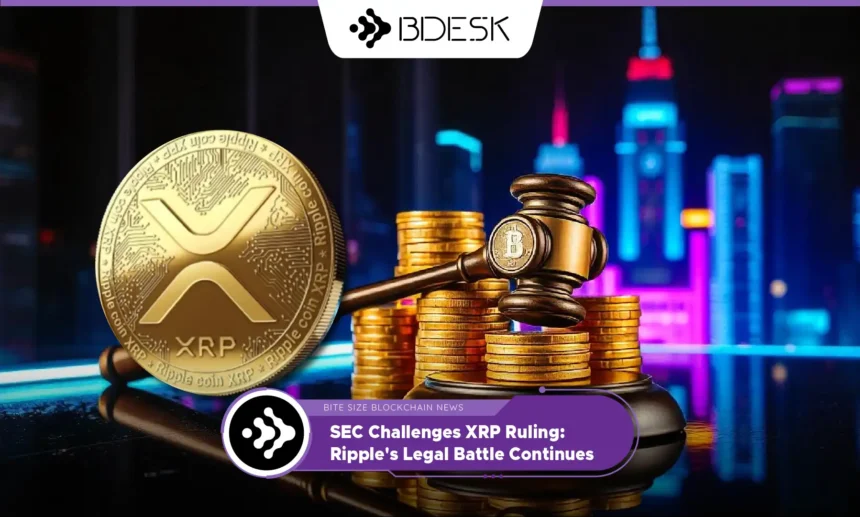The SEC has formally appealed the XRP ruling, impacting the future of cryptocurrency regulation.
SEC’s Official Appeal
The U.S. Securities and Exchange Commission (SEC) has officially appealed the XRP ruling made by Judge Analisa Torres. This appeal reignites the ongoing legal battle concerning the classification of XRP sales on cryptocurrency exchanges. The regulator is contesting key aspects of the court’s decision, which could significantly influence cryptocurrency regulation in the future.
Background of the Case
The SEC initiated this lawsuit against Ripple Labs Inc., targeting its executives, Brad Garlinghouse and Chris Larsen. The initial allegations claimed Ripple and its leaders violated the Securities Act of 1933. Specifically, the SEC argued that Ripple conducted XRP sales without the required registration, raising questions about the nature of these transactions.
Partial Victory for Ripple
On July 13, 2023, the district court delivered a split decision, granting Ripple a partial victory. The court ruled that XRP sales on digital trading platforms were not classified as securities. However, the decision also indicated that Ripple’s sales of XRP to institutional investors constituted unregistered securities, complicating the overall outcome for the company.
Final Judgment and Penalties
Following the split decision, the court issued a final judgment on August 7. This ruling mandated Ripple to pay civil penalties totaling $125,035,150. Furthermore, Ripple is prohibited from any future breaches of the Securities Act, placing additional restrictions on the company’s operations.
SEC’s Key Contentions in the Appeal
In its appeal, the SEC is disputing several critical rulings made by the court. The regulator challenges the conclusion that Ripple’s XRP sales on digital asset platforms do not qualify as unregistered securities. Additionally, the SEC takes issue with the finding that personal sales conducted by Garlinghouse and Larsen did not violate securities laws.
Non-Cash XRP Distributions
The SEC’s appeal also focuses on Ripple’s non-cash XRP distributions. These distributions were offered in exchange for services, and the SEC argues that they breached the Securities Act of 1933. This contention raises further questions about the regulatory landscape surrounding cryptocurrency transactions.
Implications for Cryptocurrency Regulation
The outcome of this appeal could have far-reaching consequences for the cryptocurrency market. If the court rules in favor of the SEC, it may set a precedent affecting how cryptocurrencies are classified and regulated in the future. Such a decision could reshape the operational landscape for various crypto entities and investors alike.
A Closer Look at Future Developments
As the appeal unfolds, industry stakeholders are closely monitoring the proceedings. The case not only impacts Ripple but also has broader implications for the entire cryptocurrency sector. Investors, companies, and regulators are all keen to see how this legal battle will influence the future of digital assets.
Looking Ahead in the XRP Case
This appeal is just one chapter in an ongoing saga involving XRP and cryptocurrency regulations. The SEC’s determination to challenge the court’s previous rulings signals that the agency is prepared to continue its pursuit of clearer regulatory guidelines. Stakeholders await the court’s decision with bated breath, as it could determine the future direction of cryptocurrency law.
Disclaimer:
The information provided on 13Desk is for informational purposes only and should not be considered financial advice. We strongly recommend conducting your own research and consulting with a qualified financial advisor before making any investment decisions. Investing in cryptocurrencies carries risks, and you should only invest what you can afford to lose. 13Desk is not responsible for any financial losses incurred from your investment activities.











